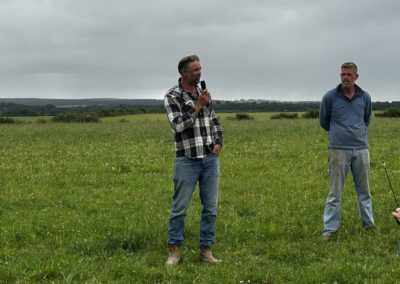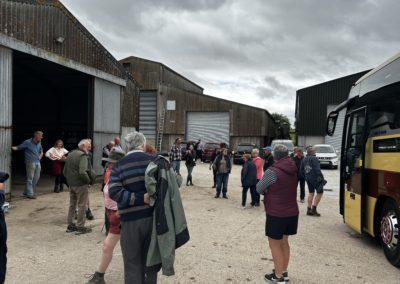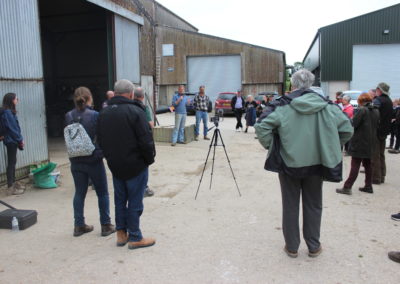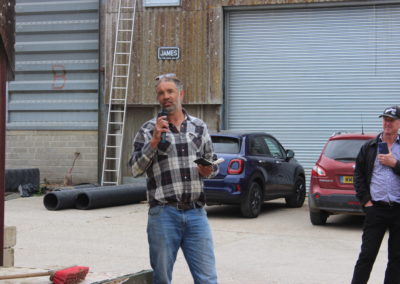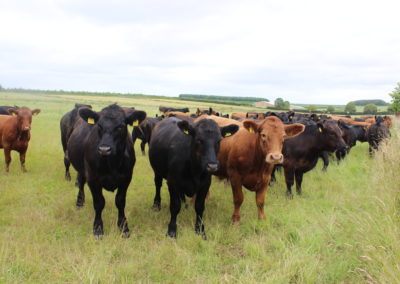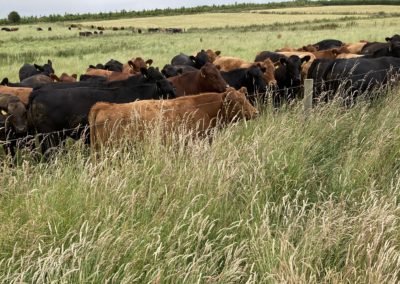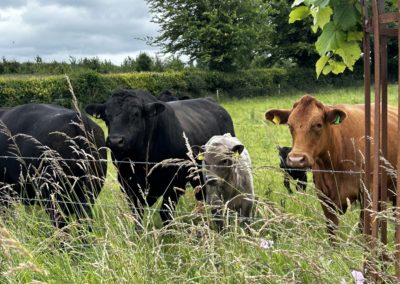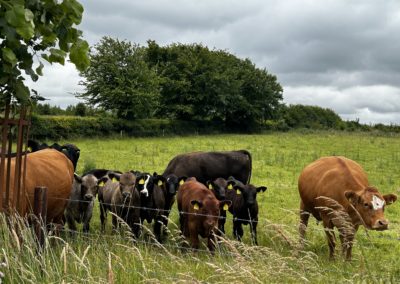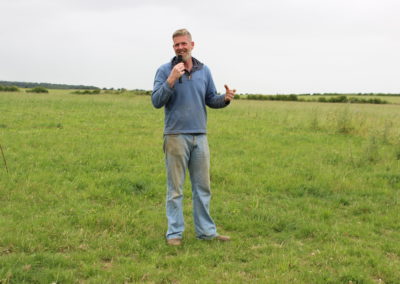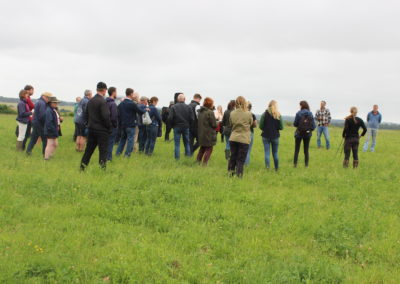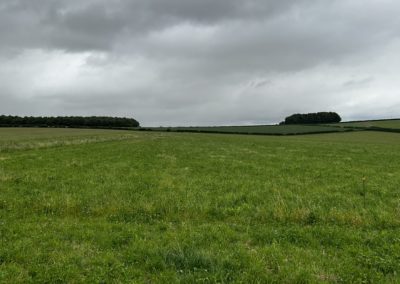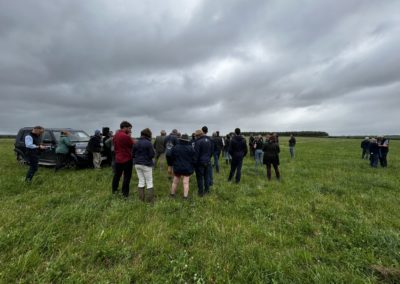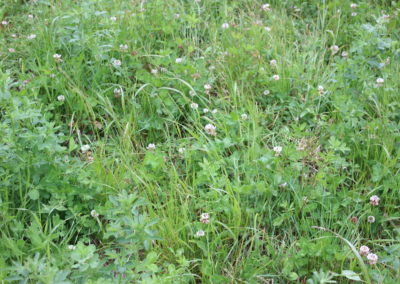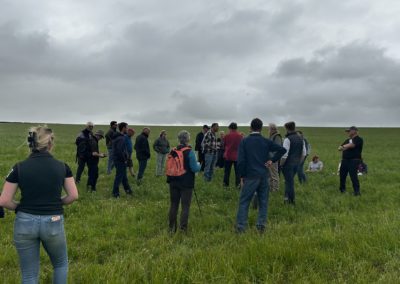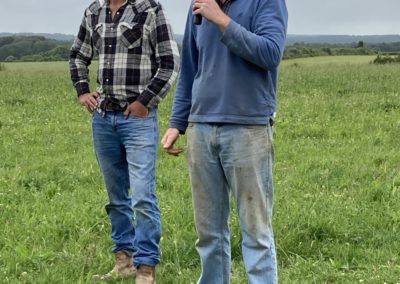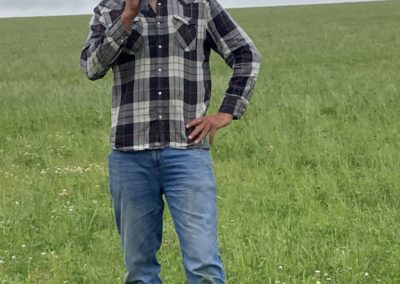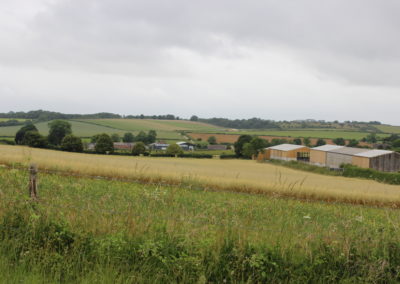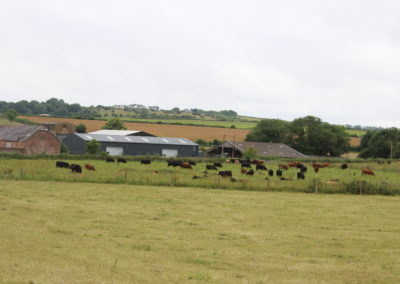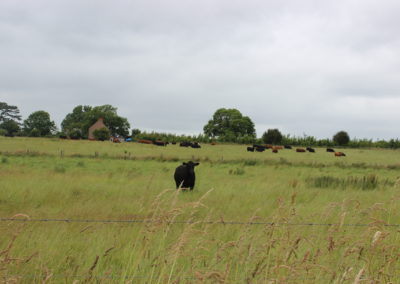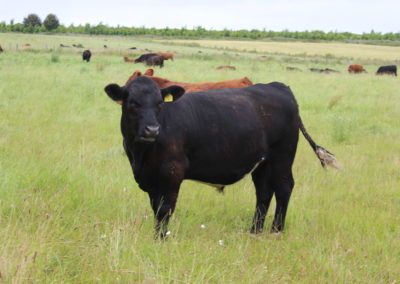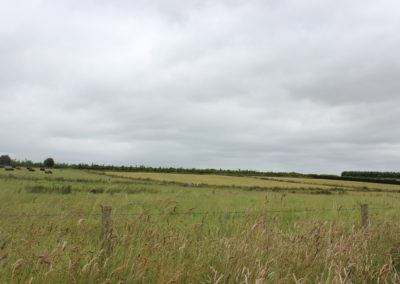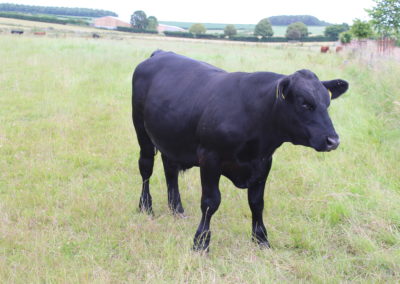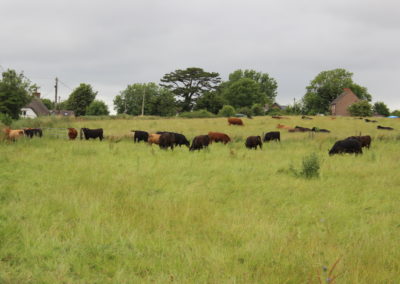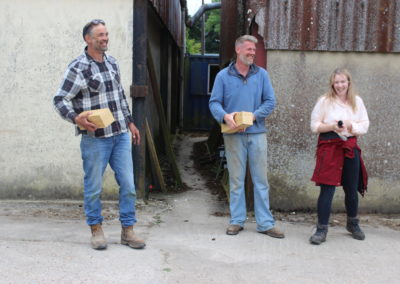Summer Meeting 2024
Launceston Farm, Tarrant Launceston, Dorset
Jimi Collis and Matt House run a herd of 130 spring calving and 130 autumn calving Stabiliser cows. The herd is run organically on a low input low output basis, grazing on permanent pasture and herbal leys. Both herbal leys and red clover leys have been grown on the farm for the last 20 years, with lucerne and sainfoin grown also. Leys are established through under sowing a cereal with an Einböck. Around 90% of the cattle on the farm are outwintered, on deferred grazing of species-rich grassland, herbal leys and red clover silage leys. A continually evolving bale grazing system has been developed over the last 5 years. Cattle may need to be housed for around a month in the spring to allow for arable operations to be carried out. Cows managed in groups of 40 and bulled for 6 weeks. Cell grazing and mob grazing have been trialled, with the chosen system being rotational paddock grazing. Calves are weaned at 10 months of age and are finished on either silage or grass. The herd is currently being expanded to 300 cows to reduce the arable rotation length. This rotation includes, spring wheat, winter oats, spring barley and spring oats. Grain is grown for milling markets.
A major focus is around farming with nature; with hedge restoration, shelter belts and wildlife corridors being established over recent years. There are 2 extentive Mid-tier Countryside Stewardship and SFI agreements in place. Environmental and biodiversity focus is led by FWAG advisor/cluster facilitator Clare Buckerfield. Around 30 educational visits, mostly from primary school children, are hosted by the farm. Launceston Farm is working hard to refine the whole system to get to a ‘business sweet spot’. The focus is to balance; the environment, biodiversity, profitability, work/life balance, landlord’s expectations and to grow/maintain community relationships.
